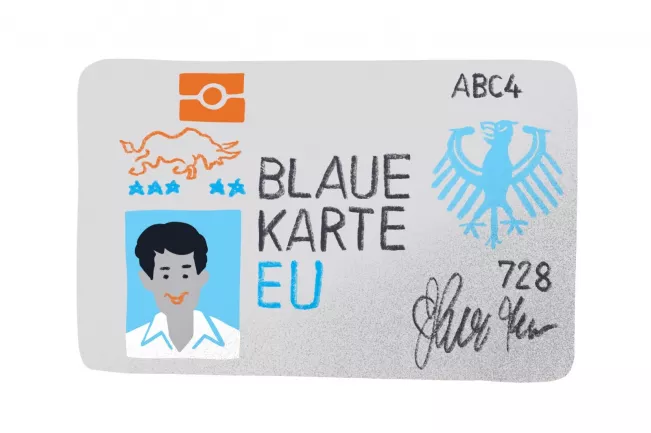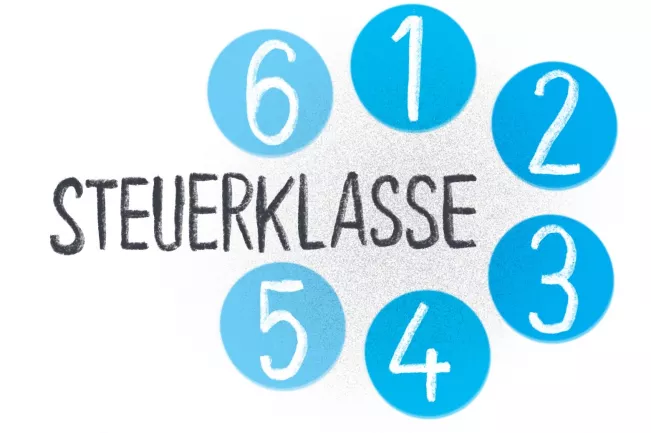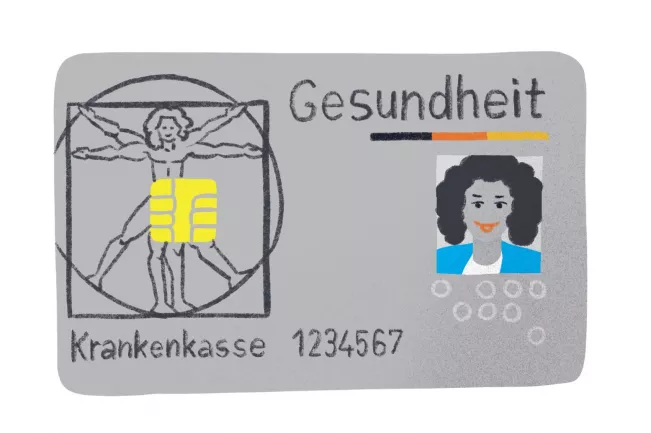Career guide for international students
Legal aspects after your academic degree
Residence permit

It is possible for you to obtain a residence permit after successfully completing your studies in Germany following a corresponding request.
Residence permit for job search after graduation (§ 16 para. 5 AufenthG)
The granting of such a residence permit is only possible immediately after graduation for up to 18 months.
Prerequisites:
- Proof of successful completion of your studies is available
- Securing your livelihood is guaranteed
- Any gainful employment may be taken up to secure your livelihood
If an appropriate job offer is available, you should apply to the relevant immigration authority and a request for a residence permit for employment will be issued.
Residence permit to take up a doctoral programme
The residence permit will be extended upon presentation of the certificate of enrolment. A doctorate can also take place in a company and employment (for example as a research associate) is possible during this time.
Residence permit for researchers according to § 20 AufenthG
Prerequisites:
- A hosting agreement has been issued by the research institution
After completion of the research project, the residence permit can be extended for up to nine months for the purpose of seeking employment.
Residence permit for employment in accordance with § 18 para. 4 sentence 1 AufenthG
For a residence permit, your work must be appropriate to your degree. With a degree in Management Sciences, for example, you are not allowed to work in foreign professional fields. However, no minimum salary is required and the permit is issued for the duration of your employment contract or for a maximum of 3 years.
EU Blue Card in accordance with Section 19 a AufenthG
Prerequisites:
- Your minimum gross salary must be 55.200 per year (as of 2020)
- This minimum salary must be earned through employment (part-time possible)
All academics with a recognised university degree can obtain the "Blue Card" residence permit. The minimum salary increases annually, but the date of issue/renewal is decisive. Those who already have an EU Blue Card are not affected by the new minimum salary limit. The new salary threshold must only be met when extending the permit or changing jobs requiring approval.
The permit is issued for four years or until the end of your employment contract plus three months. If you wish to change jobs during this period, this requires the approval of the immigration authority.
Exception: shortage occupations
If you take up employment in one of the so-called MINT occupations, your minimum gross salary must be 43.056 EUR per year. STEM fields include: Mathematics, engineering, natural sciences, computer science/IT specialists and doctors.
Benefits of the Blue Card in the EU
The Blue Card is issued for four years or until the end of your employment contract plus three months. In addition, after consultation with the immigration authority, you can stay abroad for up to twelve months without losing the validity of your Blue Card.
You can also travel to other EU countries without a visa after you have held the Blue Card for at least 18 months.
Getting a permanent residence permit (unlimited residence title) according to § 18 b AufenthG
In order to obtain an unlimited residence title, you must have held a residence permit according to §18, §19a, §21 AufenthG for at least two years. Your livelihood must be guaranteed and you must have already paid pension insurance contributions for 24 months. In addition, sufficient language skills (at least B1 according to the Common European Framework of Reference for Languages: CEFR/CERS) are required and your job must be appropriate to your qualification. You will then receive a settlement permit, which is an unlimited residence title.
Links
You can use this "online quick check" to check your options for living and working in Germany
https://www.make-it-in-germany.com/en/visa/quick-check/
The "Hotline Working and Living in Germany" answers your questions in German and English on topics such as entry, job search, credit transfer of qualifications and much more
http://www.bamf.de/DE/DasBAMF/HotlineArbeitenLeben/hotline-arbeiten-leben-node.html
Employment contract

You have successfully presented yourself and have been accepted for the job? Then congratulations! Now you just need to sign your employment contract. Here are a few important points:
An employment contract usually contains the following content, although the relevant regulations are often only referred to:
- Name and address of you and the company
- Commencement of the contract
- Term of the employment relationship
- Trial period
- Location of work and job description
- Wage and bonuses
- Working hours and holiday entitlements
- Notice periods
- Existence of collective agreements and works agreements
The contract should always be concluded in writing. Read the contract thoroughly and if there is anything you do not understand, ask the company's HR department.
Link
Here you will find the legal basis for all aspects of employment contracts & labour law:
Tax system in Germany

As an employee in Germany, you have to pay income tax. However, if you are employed, you do not have to worry about paying the tax yourself, as this is done automatically each month by your employer.
Income tax, also known as wage tax, is automatically deducted from your gross salary each month and forwarded to the tax office.
The rates of income tax are between 14 and 45% and depend on the amount of your income. The higher your income, the higher the tax rate, but there is a basic tax-free allowance. Up to this amount, no tax is payable on your taxable income.
At the end of a calendar year, you have the option of receiving a refund of some of the tax you have already paid. To do this, you must submit your tax return to the tax office, which is usually worthwhile. You can download tax return forms from your tax office's website, collect them in person or get help from a specialist (tax advisor).
Tax brackets
The amount of income tax you have to pay depends not only on your income, but also on whether you are married or not, for example. Taxpayers are therefore categorised into different tax brackets.
Links
Here you can find the current income tax rates and brackets
Social security and pension insurance in Germany

In Germany, you benefit from a well-developed insurance system that protects you as an employee against risks such as illness, accidents at work and unemployment. When you start work, you will receive a social insurance card with a number that you give to your employer. You will need this number for the rest of your life, so you should keep it safe.
As an employee, you are a member of five statutory insurances:
- Statutory health insurance: This pays the costs you incur for visits to the doctor, (partial) medication and other treatment in the event of health reasons. If you are married and your partner is not working, you can include your partner in your health insurance at no extra cost. The same applies to your children.
- Statutory long-term care insurance: This provides you with basic cover if you need long-term care, for example due to illness.
- Statutory unemployment insurance: If you have been insured for at least one year in the last two years, unemployment insurance will provide you with a temporary income if you become unemployed and are looking for work. The Federal Employment Agency also helps people to find work and offers counselling and placement services.
- Statutory accident insurance: This covers the costs of medical treatment after you have suffered an accident at work or if you suffer from an occupational disease.
- Statutory pension insurance: When you retire at an advanced age, the statutory pension insurance will pay you a monthly pension. The amount of the pension is calculated based on the number of years you have worked in Germany and the amount of your income.
Link
Here you can find the current rates of social security contributions
Opportunities for family members

As an international skilled worker or manager, you have the option of bringing your spouse and children to Germany if you fulfil certain requirements. Whether they require a special residence permit depends on your nationality. For example, nationals from a member state of the EU or the European Economic Area do not require a special residence permit. If your partner and children are citizens of a country outside the EU, you can apply for a visa for the purpose of family reunification.
Link
Here you will find all the information you need about family reunification in Germany - (only for EU citizens)
https://www.make-it-in-germany.com/de/leben-in-deutschland/familiennachzug/zu-eu-buerger
We wish you all the best on your career path in Germany!